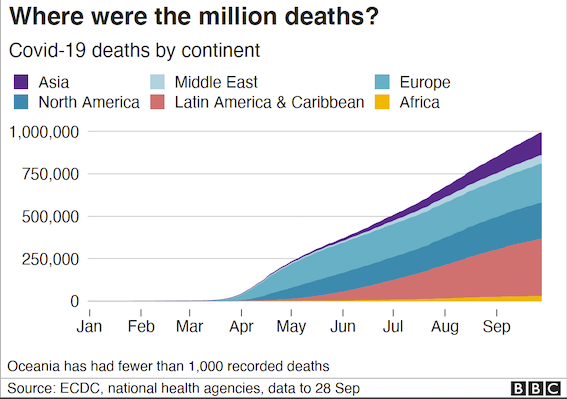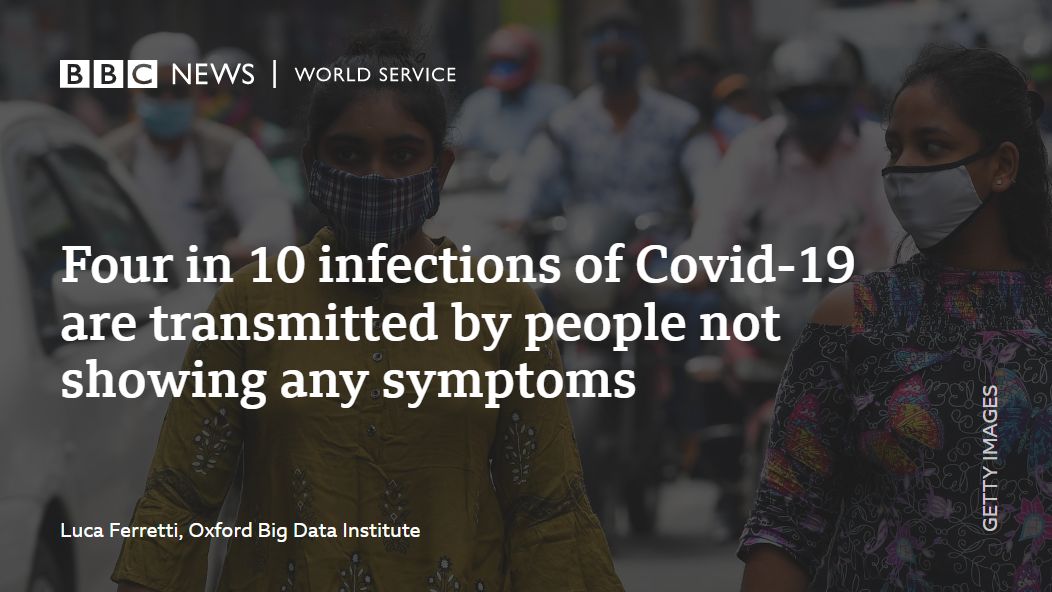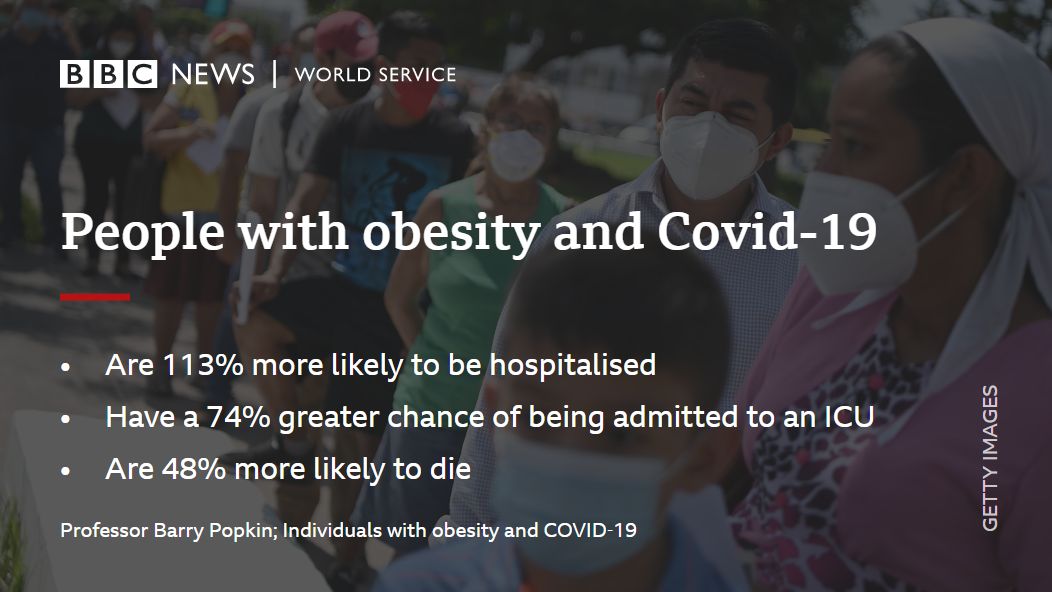The official number of deaths from Covid-19 has passed one million people worldwide  https://abs.twimg.com/emoji/v2/... draggable="false" alt="➡️" title="Pfeil nach rechts" aria-label="Emoji: Pfeil nach rechts"> https://www.bbc.co.uk/news/live/world-54336494
https://abs.twimg.com/emoji/v2/... draggable="false" alt="➡️" title="Pfeil nach rechts" aria-label="Emoji: Pfeil nach rechts"> https://www.bbc.co.uk/news/live/world-54336494
Despite">https://www.bbc.co.uk/news/live... that huge number, we still don’t know enough about the virus.
Here’s are some of the key questions scientists are looking at https://abs.twimg.com/emoji/v2/... draggable="false" alt="⬇️" title="Pfeil nach unten" aria-label="Emoji: Pfeil nach unten"> (THREAD 1/9)
https://abs.twimg.com/emoji/v2/... draggable="false" alt="⬇️" title="Pfeil nach unten" aria-label="Emoji: Pfeil nach unten"> (THREAD 1/9)
Despite">https://www.bbc.co.uk/news/live... that huge number, we still don’t know enough about the virus.
Here’s are some of the key questions scientists are looking at
Could mutations be making coronavirus more dangerous?
They could potentially mean people who’ve already had the virus could be reinfected with a new variant (2/9)
They could potentially mean people who’ve already had the virus could be reinfected with a new variant (2/9)
A recent @bdi_oxford study suggests that in the crucial phases, when people are most likely to pass on Covid-19, four in 10 have no virus symptoms (3/9)
https://www.bbc.co.uk/sounds/play/p08s9d32">https://www.bbc.co.uk/sounds/pl...
https://www.bbc.co.uk/sounds/play/p08s9d32">https://www.bbc.co.uk/sounds/pl...
Another key characteristic making the virus tricky to understand is that it affects people in different countries in different ways.
India has the 2nd highest number of cases globally, but an 80% recovery rate – one of the highest in the world (4/9) https://www.bbc.co.uk/sounds/play/p08s3fwp">https://www.bbc.co.uk/sounds/pl...
India has the 2nd highest number of cases globally, but an 80% recovery rate – one of the highest in the world (4/9) https://www.bbc.co.uk/sounds/play/p08s3fwp">https://www.bbc.co.uk/sounds/pl...
Africa has also bucked the trend of recent rises, with a drop of 12% in cases. How?
Experience of previous pandemics and a united front by communities across the continent are thought to be behind the positive numbers (5/9) https://www.bbc.co.uk/sounds/play/p08s8577">https://www.bbc.co.uk/sounds/pl...
Experience of previous pandemics and a united front by communities across the continent are thought to be behind the positive numbers (5/9) https://www.bbc.co.uk/sounds/play/p08s8577">https://www.bbc.co.uk/sounds/pl...
Scientists believe obesity has a devastating impact on the risks of complications from Covid-19. A recent report revealed some worrying statistics  https://abs.twimg.com/emoji/v2/... draggable="false" alt="⬇️" title="Pfeil nach unten" aria-label="Emoji: Pfeil nach unten"> (6/9)
https://abs.twimg.com/emoji/v2/... draggable="false" alt="⬇️" title="Pfeil nach unten" aria-label="Emoji: Pfeil nach unten"> (6/9)
https://www.bbc.co.uk/sounds/play/p08srnyl">https://www.bbc.co.uk/sounds/pl...
https://www.bbc.co.uk/sounds/play/p08srnyl">https://www.bbc.co.uk/sounds/pl...
Medical researchers have noticed that Covid-19 seems to make people& #39;s blood much stickier, which can lead to blood clots (7/9) https://www.bbc.co.uk/sounds/play/p08sdbg2">https://www.bbc.co.uk/sounds/pl...
With infection rates so high, isolating is more important than ever – but how do you know if you’ve picked up a cold, the flu or Covid-19? (8/9) https://www.bbc.co.uk/sounds/play/p08sd8nl">https://www.bbc.co.uk/sounds/pl...
Are you near one of the latest Covid-19 hotspots?
Check out these charts, which are updated daily (9/9) https://www.bbc.co.uk/news/world-51235105">https://www.bbc.co.uk/news/worl...
Check out these charts, which are updated daily (9/9) https://www.bbc.co.uk/news/world-51235105">https://www.bbc.co.uk/news/worl...

 Read on Twitter
Read on Twitter https://www.bbc.co.uk/news/live... that huge number, we still don’t know enough about the virus. Here’s are some of the key questions scientists are looking at https://abs.twimg.com/emoji/v2/... draggable="false" alt="⬇️" title="Pfeil nach unten" aria-label="Emoji: Pfeil nach unten"> (THREAD 1/9)" title="The official number of deaths from Covid-19 has passed one million people worldwide https://abs.twimg.com/emoji/v2/... draggable="false" alt="➡️" title="Pfeil nach rechts" aria-label="Emoji: Pfeil nach rechts"> https://www.bbc.co.uk/news/live... that huge number, we still don’t know enough about the virus. Here’s are some of the key questions scientists are looking at https://abs.twimg.com/emoji/v2/... draggable="false" alt="⬇️" title="Pfeil nach unten" aria-label="Emoji: Pfeil nach unten"> (THREAD 1/9)" class="img-responsive" style="max-width:100%;"/>
https://www.bbc.co.uk/news/live... that huge number, we still don’t know enough about the virus. Here’s are some of the key questions scientists are looking at https://abs.twimg.com/emoji/v2/... draggable="false" alt="⬇️" title="Pfeil nach unten" aria-label="Emoji: Pfeil nach unten"> (THREAD 1/9)" title="The official number of deaths from Covid-19 has passed one million people worldwide https://abs.twimg.com/emoji/v2/... draggable="false" alt="➡️" title="Pfeil nach rechts" aria-label="Emoji: Pfeil nach rechts"> https://www.bbc.co.uk/news/live... that huge number, we still don’t know enough about the virus. Here’s are some of the key questions scientists are looking at https://abs.twimg.com/emoji/v2/... draggable="false" alt="⬇️" title="Pfeil nach unten" aria-label="Emoji: Pfeil nach unten"> (THREAD 1/9)" class="img-responsive" style="max-width:100%;"/>

 (6/9) https://www.bbc.co.uk/sounds/pl..." title="Scientists believe obesity has a devastating impact on the risks of complications from Covid-19. A recent report revealed some worrying statistics https://abs.twimg.com/emoji/v2/... draggable="false" alt="⬇️" title="Pfeil nach unten" aria-label="Emoji: Pfeil nach unten"> (6/9) https://www.bbc.co.uk/sounds/pl..." class="img-responsive" style="max-width:100%;"/>
(6/9) https://www.bbc.co.uk/sounds/pl..." title="Scientists believe obesity has a devastating impact on the risks of complications from Covid-19. A recent report revealed some worrying statistics https://abs.twimg.com/emoji/v2/... draggable="false" alt="⬇️" title="Pfeil nach unten" aria-label="Emoji: Pfeil nach unten"> (6/9) https://www.bbc.co.uk/sounds/pl..." class="img-responsive" style="max-width:100%;"/>


